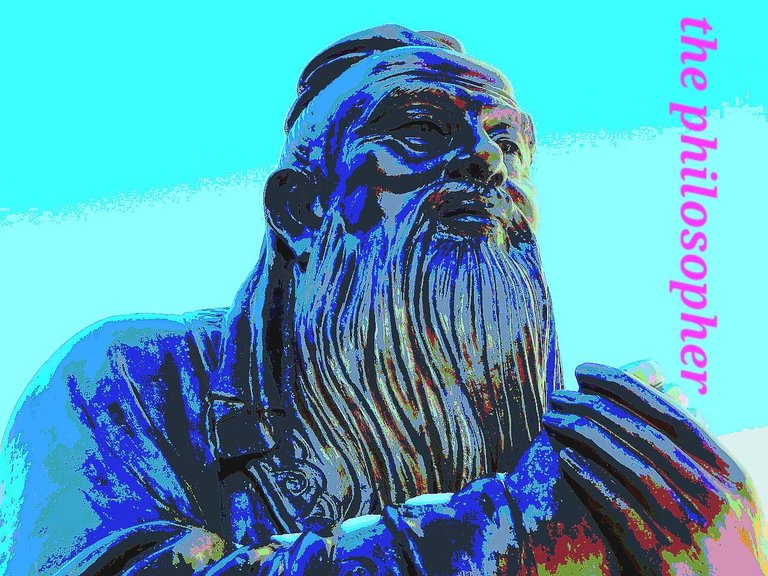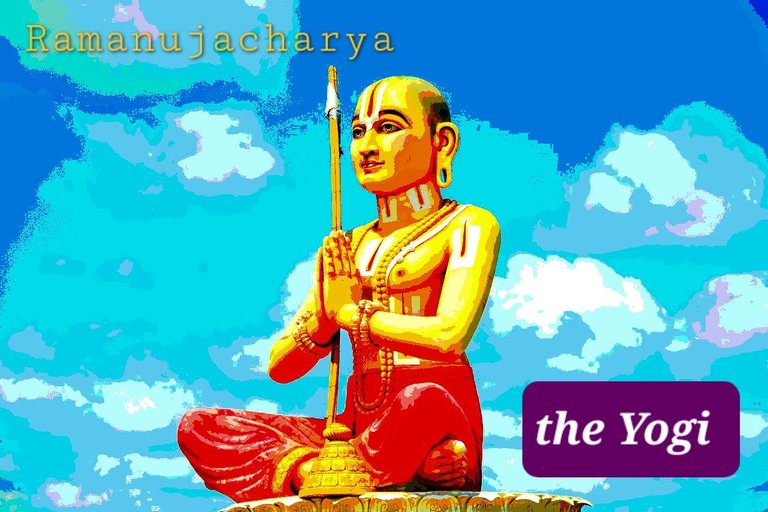There are two ways to escape a state of despair, if one finds one self in such a condition, under the hard struggle for survival in the material world.

One way is hard work.
You can simply work harder and gain the material resources required to feel comfortable in this material world.
The second way is to to be introspective and philosophize about the situation you find yourself in. If you're thoughtful and philosophical enough, you may be able to find meaning and thus come to accept your condition for what it is.

With the philosophical perspective to life - and the potential capacity to be able to endure one's situation - one can certainly lift the burden that the mind may impose upon us, under the strain of material existence.
The first method of solving the challenge of life is external and the second method is internal. By working hard to change the external conditions around us, we can get out of a difficult situation, like lack of resources for survival.
If one can't grapple and harness the material energy, due to unfortunate nature (location by birth in a certain family or geography) or nurture (upbringing and education) then one can grapple with one's own mindset like a philosopher or yogi.

Sometimes people are simply born into difficult circumstances, such as a poor family or a harsh climatic condition. And thus success or Good Fortune maybe more difficult for them to attain, compared to someone who may be born with the potential climb out of poverty using the tools all around them.
Ultimately both of these people - the worker and the philosopher - use two different methods to achieve satisfaction and contentment with their lot.
This "lot" however, his still temporary and one is obliged to leave it behind in the end, regardless of how big go small it may be.

To really succeed in one's work or one's life of philosophy, one should take up the words of the ancient yoga text like the Bhagavad Gita. In the Gita it clearly states how one can turn one's work into a meditation if one channels it into service to the Supreme. Or yes the profits for elevating consciousness.
Similarly, one can channel one's philosophical inclinations by using them to inquire into the nature of matter and spirit, or the imminent versus the transcendent.
By philosophizing about such abstract concepts, based on the philosophical teachings of a great yogi's who have gone before us, we can always easily come to understand our real condition and how to really find satisfaction on the Eternal level, not just on the temporary level of survival in the body.

We can easily understand that "work" alone is not enough - in its own right - because it does not purify the heart of disturbing qualities that may hamper our journey of transcendence.
Also, philosophy in and of itself, is not enough to bring us to the ultimate conclusion or the absolute truth because it is based on mental speculation and sometimes word jugglery.
Therefore, the best use of work or action or karma, is to transform it into "karma yoga" or a means for ultimate liberation from this temporary material body.
And the best use of philosophy or jnana, is to channel it into "jnana yoga", where one contemplates in a philosophical way one's existence as eternal consciousness, while in this temporary and the limited material condition.

In this way both the extrovert and the introvert, or the externally motivated and internally motivated person, can use their natural tendency to focus on the ultimate goal of life, which is not mere survival but rather liberation from the bondage of this physical body and repeated birth and death in the cycle of reincarnation.
Religion without philosophy is sentiment, or sometimes fanaticism, while philosophy without religion is mental speculation.
Bhagavad Gita ch3:3
श्रीभगवानुवाच
लोकेऽस्मिन्द्विविधा निष्ठा पुरा प्रोक्ता मयानघ ।
ज्ञानयोगेन सांख्यानां कर्मयोगेन योगिनाम् ॥ ३ ॥
śrī-bhagavān uvāca
loke ’smin dvi-vidhā niṣṭhā
purā proktā mayānagha
jñāna-yogena sāṅkhyānāṁ
karma-yogena yoginām
SYNONYMS
śrī bhagavān uvāca—the Supreme Personality of Godhead said; loke—in the world; asmin—this; dvi-vidhā—two kinds of; niṣṭhā—faith; purā—formerly; proktā—was said; mayā—by Me; anagha—O sinless one; j�āna-yogena—by the linking process of knowledge; sāṅkhyānām—of the empiric philosophers; karma-yogena—by the linking process of devotion; yoginām—of the devotees.
TRANSLATION
The Blessed Lord said: O sinless Arjuna, I have already explained that there are two classes of men who realize the Self. Some are inclined to understand Him by empirical, philosophical speculation, and others are inclined to know Him by devotional work.
PURPORT
In the Second Chapter, verse 39, the Lord explained two kinds of procedures—namely sāṅkhya-yoga and karma-yoga, or buddhi-yoga. In this verse, the Lord explains the same more clearly. Sāṅkhya-yoga, or the analytical study of the nature of spirit and matter, is the subject matter for persons who are inclined to speculate and understand things by experimental knowledge and philosophy. The other class of men work in Kṛṣṇa consciousness, as it is explained in the 61st verse of the Second Chapter. The Lord has explained, also in the 39th verse, that by working by the principles of buddhi-yoga, or Kṛṣṇa consciousness, one can be relieved from the bonds of action; and, furthermore, there is no flaw in the process. The same principle is more clearly explained in the 61st verse—that this buddhi-yoga is to depend entirely on the Supreme (or more specifically, on Kṛṣṇa), and in this way all the senses can be brought under control very easily. Therefore, both the yogas are interdependant, as religion and philosophy. Religion without philosophy is sentiment, or sometimes fanaticism, while philosophy without religion is mental speculation. The ultimate goal is Kṛṣṇa, because the philosophers who are also sincerely searching after the Absolute Truth come in the end to Kṛṣṇa consciousness. This is also stated in the Bhagavad-gītā. The whole process is to understand the real position of the self in relation to the Superself. The indirect process is philosophical speculation, by which, gradually, one may come to the point of Kṛṣṇa consciousness; and the other process is directly connecting with everything in Kṛṣṇa consciousness. Of these two, the path of Kṛṣṇa consciousness is better because it does not depend on purifying the senses by a philosophical process. Kṛṣṇa consciousness is itself the purifying process, and by the direct method of devotional service it is simultaneously easy and sublime.
Ref: Bhagavad Gita As It Is, translation and commentary by Swami A. C. Bhaktivedanta, original MacMillan 1972 edition
Images from pixabay, edited using mobile device. Written and published on mobile using Peakd app.